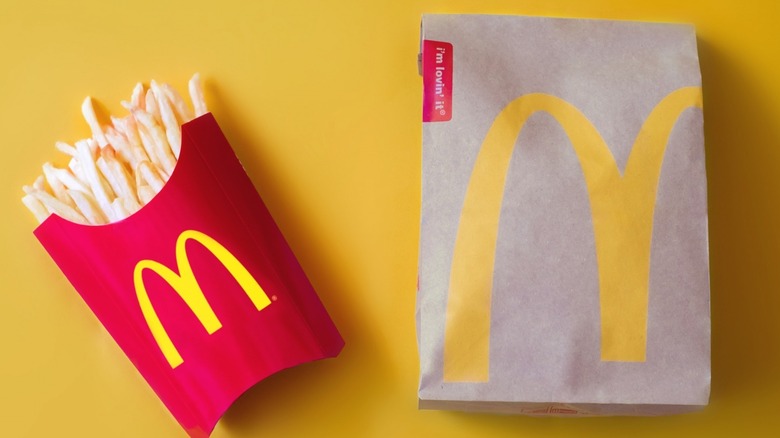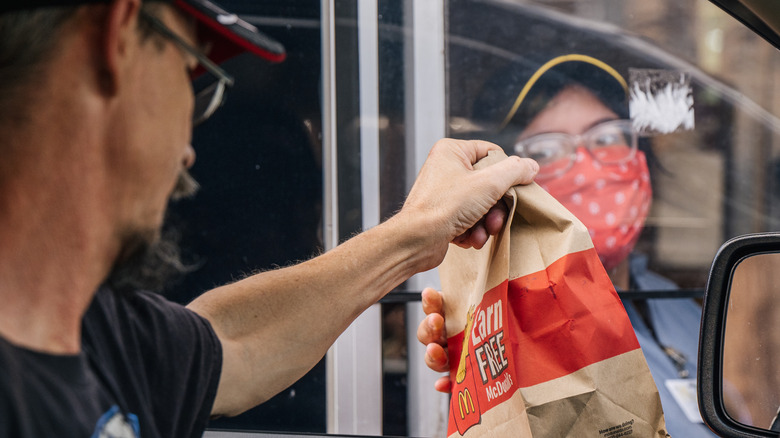Why You Shouldn't Expect To See Robots At Your Local McDonald's Just Yet
With a brand value of nearly $197 billion, McDonald's may be one of the top ten most valuable brands in the United States. But that doesn't mean the chain is impervious to the threats faced by other businesses. Like everyone else, the company faced the same operating challenges for the second quarter of this year, which the company's president and CEO Chris Kempczinski said included "rising inflation, a surge in COVID-19 cases and the return of government restrictions in many markets, exacerbating labor shortages and supply chain challenges," per Alpha Street.
Yet the company says it fared well, all things considered; its second-quarter net income came in at $1.19 billion dollars — down $2.22 billion from the same time a year ago, per CNBC. Part of that hit came from the $1.2 billion related to ceasing business in Russia, which was triggered by the war in Ukraine. CNBC adds that inflation — which the fast food giant projects at 12% to 14% for "food and packaging" in the U.S. alone, also took a bite out of McDonald's bottom line.
Another challenge McDonald's and other fast food companies can't seem to get around is a labor shortage. A survey conducted by the National Restaurant Association shows that as a whole, 78% of restaurant operators say they don't have enough employees to meet business needs, per Restaurant Business Online. Some businesses are turning to automation to solve staffing woes, but not everyone is on board.
McDonalds CEO says there are no tech shortcuts to labor problems
In a call about 2022's Q2 earnings, McDonald's president and CEO Chris Kempczinski was asked whether staffing problems were preventing the fast food giant from reaching its full earnings potential, and whether there were any tech solutions that the company could adopt to increase efficiencies and increase profit (via Alpha Street). "Thinking about longer term, there's a lot of interest around what can you do from an automation standpoint," the CEO said. "We've spent a lot of time, money, effort, looking at this, and there is not going to be a silver bullet that goes and addresses this for the industry."
He added that "the idea of robots and all those things, while it maybe is great for garnering headlines, it's not practical in the vast majority of restaurants. The economics don't pencil out, you don't necessarily have the footprint, and there's a lot of infrastructure investments that you need to do around your utility, around your HVAC systems. You're not going to see that as a broad-based solution anytime soon."
Though robots have been implemented at fast food chains (including McDonald's), Kempczinski said the fast food industry had no quick fixes for the labor shortage. Instead, the CEO said "we've got to kind of get after this the old-fashioned way, which is just making sure we're a great employer and offering our crew a great experience when they come into the restaurants."

